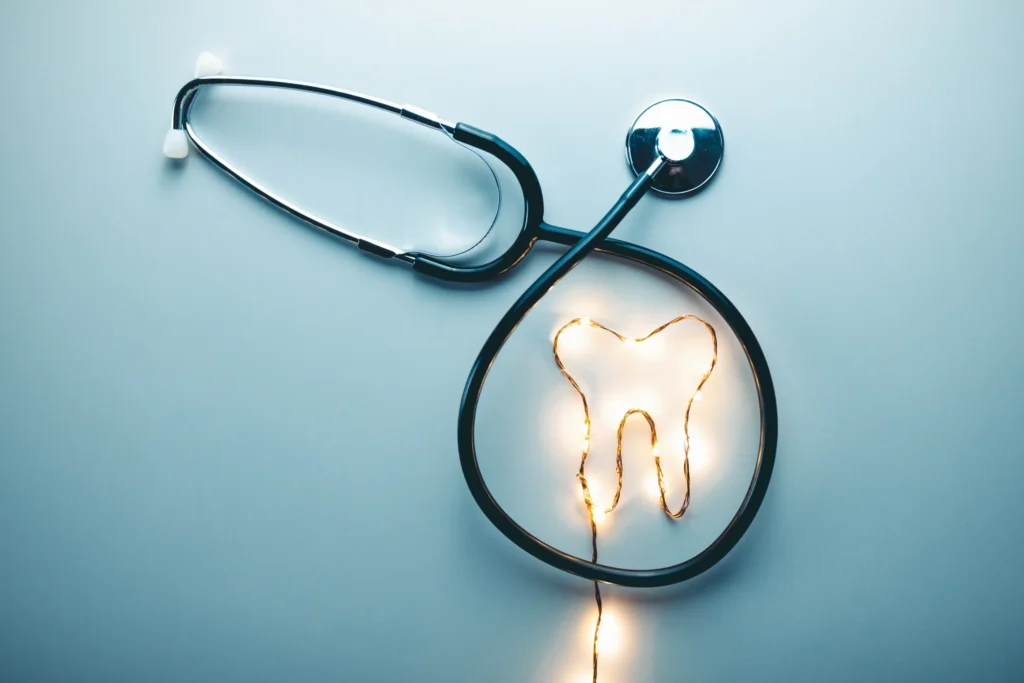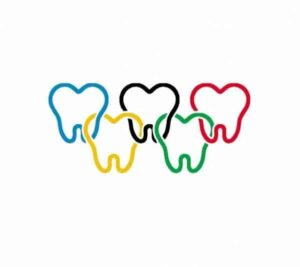As the winter season approaches, it’s important to pay extra attention to your dental health. The colder temperatures and changes in routine can have a significant impact on your oral hygiene. Dorset Dental has a team of experts dedicated to helping you maintain a healthy smile all year round. In this blog post, I will share essential tips and advice on how to take care of your teeth during the winter months. From combating dry mouth to protecting your teeth from cold sensitivity, I’ve got you covered!

Stay Hydrated to Combat Dry Mouth
During the winter, the air tends to be drier, both outdoors and indoors due to the use of heaters. This can lead to an increased risk of dry mouth, a condition that reduces saliva production. Saliva plays a crucial role in maintaining oral health by washing away food particles, neutralizing acids, and fighting bacteria.
To combat dry mouth and keep your teeth healthy:
Drink plenty of water
Make sure to drink enough water throughout the day to stay hydrated. Sipping water regularly helps stimulate saliva production and prevents dryness.
Avoid excessive caffeine and alcohol
Caffeine and alcohol can further contribute to dehydration and exacerbate dry mouth symptoms. Limit your intake of these beverages during the winter months.
Use a humidifier
Invest in a humidifier for your home to add moisture to the air. This can help alleviate dryness and provide relief for dry mouth symptoms.
Brush and Floss Regularly
Maintaining a consistent oral hygiene routine is crucial, regardless of the season. However, it becomes even more important during the winter months when indulging in holiday treats and sweets is common. Regular brushing and flossing help remove plaque and prevent tooth decay and gum disease.
Follow these tips for effective oral hygiene:
Brush twice a day
Brush your teeth at least twice a day using a soft-bristled toothbrush and fluoride toothpaste. Pay attention to all surfaces of your teeth, including the back molars and along the gum line.
Floss daily
Flossing is just as important as brushing, as it helps remove plaque and food particles from between your teeth that a toothbrush can’t reach. Make it a habit to floss at least once a day.
Use mouthwash
Consider incorporating an antimicrobial mouthwash into your routine to kill bacteria and freshen your breath. Consult with your dentist at Dorset Dental for recommendations on suitable mouthwash options.
Protect Your Teeth from Cold Sensitivity
Many people experience increased tooth sensitivity during the winter months, especially when exposed to cold air or consuming hot or cold foods and drinks. This sensitivity can be uncomfortable and may indicate underlying dental issues such as enamel erosion or gum recession.
To protect your teeth from cold sensitivity:
Use a desensitizing toothpaste
Switch to a toothpaste specifically formulated for sensitive teeth. These toothpastes contain ingredients that help block the sensation of pain caused by cold stimuli.
Avoid extreme temperature changes
Try to avoid sudden changes in temperature inside your mouth by not consuming extremely hot or cold foods and drinks. Allow them to reach room temperature before consuming.
Wear a scarf or mask
When going outside in chilly weather, cover your mouth with a scarf or mask to protect your teeth from direct exposure to cold air.
Maintain a Healthy Diet
Winter often brings indulgence in sugary treats and comfort foods, which can negatively impact your dental health if consumed excessively. Maintaining a healthy diet is essential for overall well-being, including your teeth and gums.
Follow these dietary tips for a healthy smile:
Limit sugary snacks and beverages
Reduce your intake of sugary snacks and drinks, as they contribute to tooth decay. Opt for healthier alternatives like fruits, vegetables, and nuts.
Incorporate teeth-friendly foods
Include foods rich in calcium, vitamin D, and phosphorus in your diet. These nutrients promote strong teeth and bones. Good options include dairy products, leafy greens, fish, and eggs.
Chew sugar-free gum
Chewing sugar-free gum after meals stimulates saliva production, which helps wash away food particles and neutralize acids in the mouth.
Schedule Regular Dental Check-ups
Regular dental check-ups are vital for maintaining optimal oral health throughout the year, including the winter season. Visiting Dorset Dental for professional teeth whitening and examinations allows our team to detect any potential dental issues early on and provide appropriate treatment.
Professional cleaning7
Professional cleanings remove plaque buildup that regular brushing and flossing may miss. This helps prevent tooth decay and gum disease.
Comprehensive examination
During your dental check-up, our dentists will thoroughly examine your teeth, gums, and mouth for any signs of cavities, gum disease, or other dental problems.
Oral cancer screening
Regular check-ups also include an oral cancer screening, which can help detect any abnormalities or early signs of oral cancer.
Conclusion
Taking care of your teeth during the winter months is essential for maintaining excellent oral health. By following these tips from Dorset Dental, you can keep your teeth strong, prevent dental issues, and enjoy a healthy smile all year round. Remember to stay hydrated, maintain good oral hygiene practices, protect against cold sensitivity, eat a balanced diet, and schedule regular dental check-ups with our team of experts. Don’t let the winter season compromise your dental health – take action today!
Frequently asked questions (FAQs) regarding taking care of your teeth in the winter:
- How does the winter season affect my oral health?
Ans: During the winter, colder temperatures and drier air can lead to increased dry mouth, cold sensitivity, and an inclination towards consuming sugary treats. These factors can hurt your oral health.
2. What can I do to combat dry mouth in the winter?
Ans: To combat dry mouth, it is important to stay hydrated by drinking plenty of water, limiting caffeine and alcohol consumption, and using a humidifier at home to add moisture to the air.3.
3. How often should I brush and floss during the winter?
Ans: It is recommended to brush your teeth at least twice a day and floss at least once a day throughout the year, including the winter months. Consistent oral hygiene practices are essential for maintaining a healthy smile.
4. Is tooth sensitivity more common during the winter?
Ans: Yes, many people experience increased tooth sensitivity during the winter months. This can be due to exposure to cold air or consuming hot or cold foods and drinks. Using desensitizing toothpaste and avoiding extreme temperature changes can help protect your teeth from sensitivity.
5. Are there any specific dietary recommendations for maintaining dental health in the winter?
Ans: Yes, it is important to limit sugary snacks and beverages, opt for teeth-friendly foods rich in calcium, vitamin D, and phosphorus, and chew sugar-free gum after meals to promote saliva production.
6. How often should I visit the dentist during the winter?
Ans: It is recommended to schedule regular dental check-ups every six months or as advised by your Scarborough family dentist. Regular visits allow for professional cleanings, comprehensive examinations, and oral cancer screenings.
7. Can I still indulge in holiday treats without compromising my dental health?
Ans: While it’s okay to enjoy holiday treats in moderation, it is important to maintain a balance and practice good oral hygiene. Brushing and flossing after indulging in sweets can help reduce the risk of tooth decay.
8. Can the winter weather cause dental emergencies?
Ans: Extreme cold weather can potentially increase the risk of dental emergencies such as cracked or chipped teeth. It is important to be cautious and avoid biting on hard objects or using your teeth as tools.
9. How can I protect my teeth when participating in winter sports or activities?
Ans: If you participate in winter sports or activities, wearing a mouthguard can help protect your teeth from potential injuries caused by falls or impacts.
10. What should I do if I experience dental pain or discomfort during the winter?
Ans: If you experience dental pain or discomfort, it is important to schedule an appointment with your dentist in Scarborough; Dorset Dental as soon as possible. They will be able to diagnose the issue and provide appropriate treatment to alleviate your symptoms.




